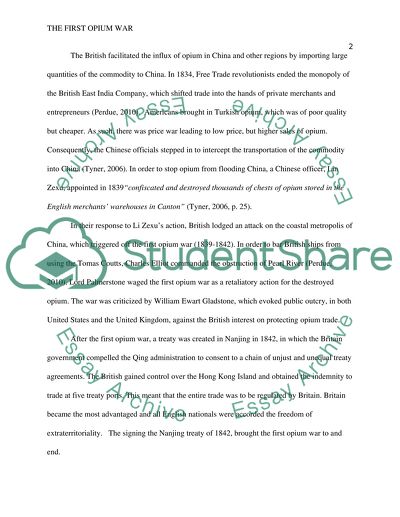The First Opium War 1 question Coursework Example | Topics and Well Written Essays - 500 words. Retrieved from https://studentshare.org/law/1620606-the-first-opium-war-1-question
The First Opium War 1 Question Coursework Example | Topics and Well Written Essays - 500 Words. https://studentshare.org/law/1620606-the-first-opium-war-1-question.


